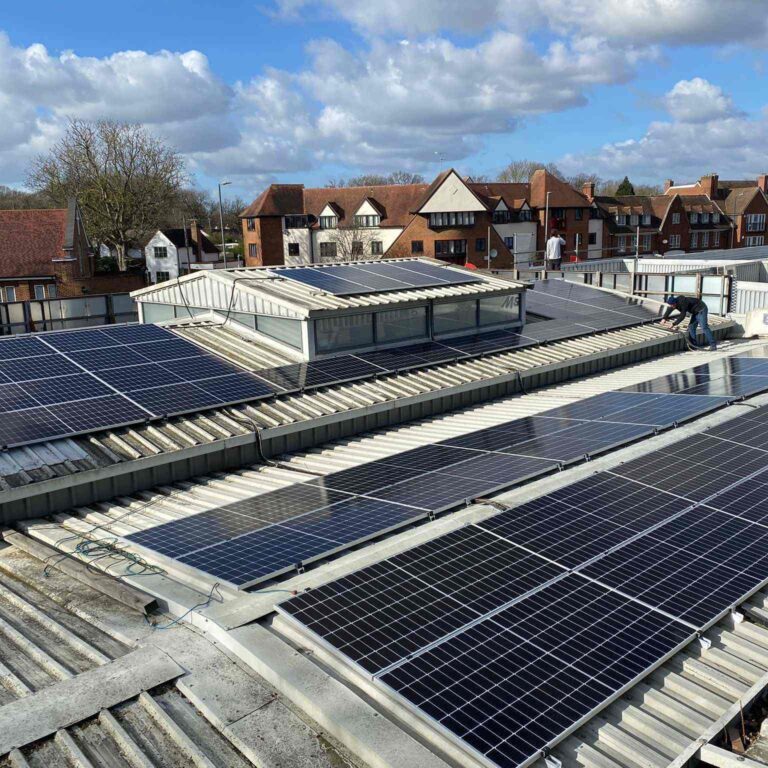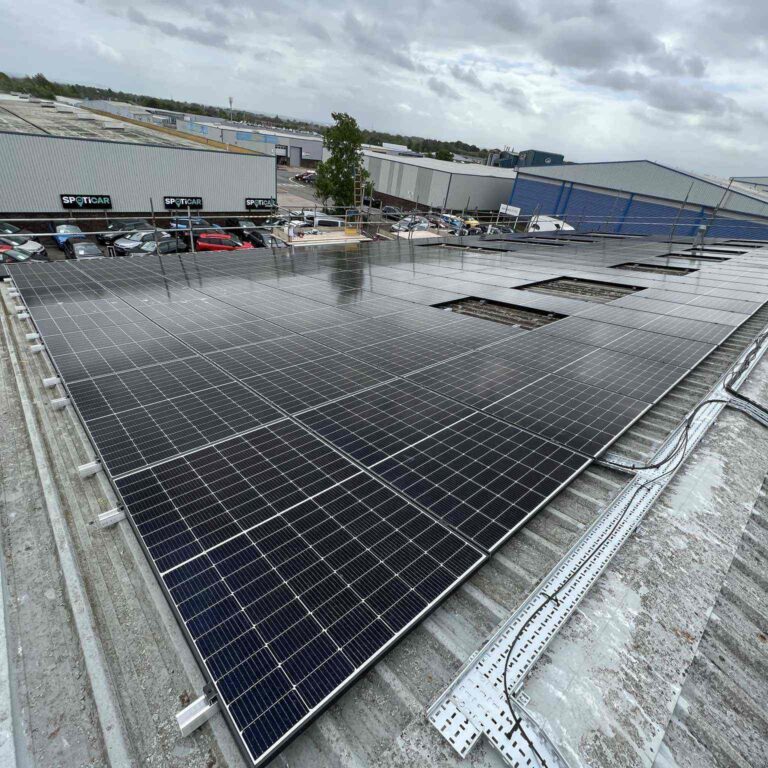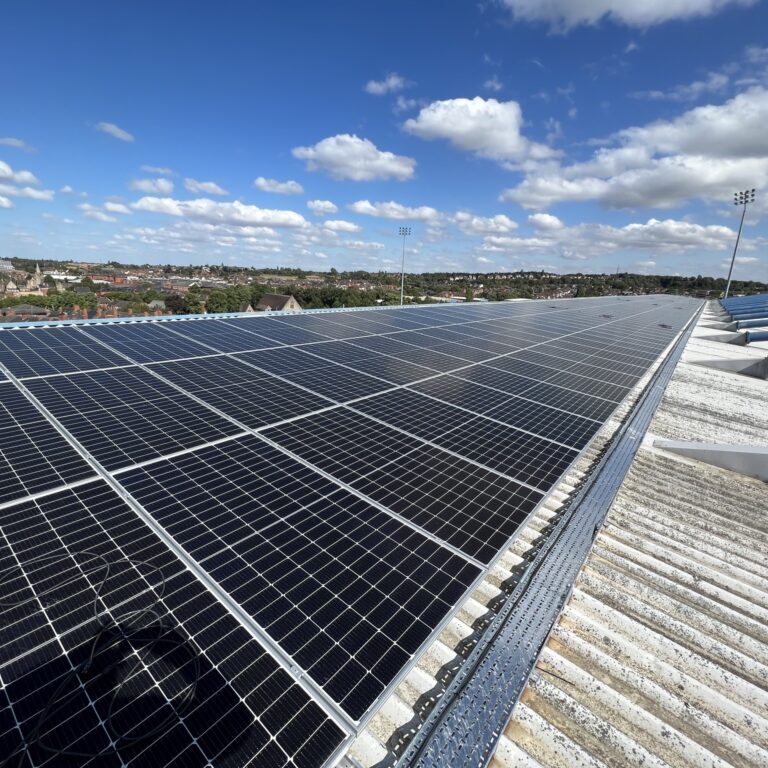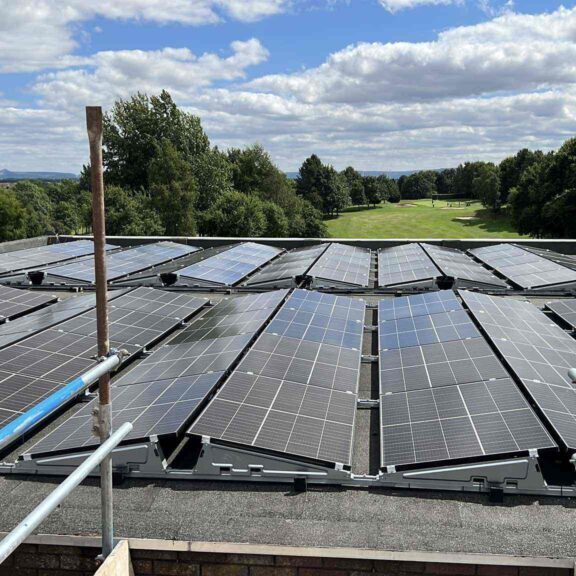As the global focus on environmental sustainability intensifies, organizations are increasingly seeking effective ways to reduce their carbon footprint and achieve carbon neutrality. One of the most credible and recognized standards for demonstrating carbon neutrality is PAS 2060. A significant tool in achieving PAS 2060 certification is the use of solar panels. This article explores how utilizing solar panels can help your organization meet the requirements of PAS 2060, enhancing your sustainability credentials and contributing to a greener future.
What is PAS 2060?
PAS 2060 is a standard developed by the British Standards Institution (BSI) for achieving and demonstrating carbon neutrality. Introduced in 2010, PAS 2060 outlines the requirements for measuring, reducing, and offsetting greenhouse gas (GHG) emissions to achieve a state of carbon neutrality. To become PAS 2060 certified, organizations must effectively manage their carbon emissions, employ strategies to minimize them, and offset any remaining emissions through accredited projects.
How Solar Panels Contribute to PAS 2060 Certification
Using solar panels is a powerful strategy for achieving PAS 2060 certification. Here’s how solar panels align with the PAS 2060 requirements and help organizations reach their carbon neutrality goals:
- Reducing Carbon Footprint
The first requirement of PAS 2060 is to measure and reduce your carbon footprint. Solar panels play a crucial role in this process. By generating clean, renewable energy, solar panels significantly reduce reliance on fossil fuels, which are a major source of carbon emissions. Here’s how solar panels contribute to reducing your carbon footprint:
- Clean Energy Production: Solar panels convert sunlight into electricity without emitting greenhouse gases. By substituting conventional energy sources with solar power, your organization can significantly lower its overall carbon emissions.
- Energy Independence: Installing solar panels reduces dependency on grid electricity, which is often generated from fossil fuels. This shift decreases the amount of carbon dioxide and other pollutants associated with energy production.
- Implementing a Reduction Plan
PAS 2060 requires organizations to develop and implement a comprehensive plan to reduce their emissions. Solar panels can be a central component of this plan:
- Energy Efficiency: Solar panels can help improve energy efficiency by providing a reliable and sustainable source of power. This can reduce the need for energy from less sustainable sources, leading to lower overall emissions.
- Cost Savings: The reduction in energy costs achieved through solar power can free up resources that can be invested in further sustainability initiatives. This financial flexibility supports ongoing efforts to reduce emissions and enhance overall environmental performance.
- Offsetting Remaining Emissions
After reducing your carbon footprint, PAS 2060 requires organizations to offset any remaining emissions. While solar panels significantly reduce emissions, there may still be some residual emissions associated with other aspects of operations. Here’s how solar panels assist in the offsetting process:
- Certification Benefits: The adoption of solar panels and the associated reduction in emissions can enhance your organization’s credibility when purchasing carbon offsets. By demonstrating substantial reductions through renewable energy, you can more effectively justify and validate the need for offsetting any remaining emissions.
- Enhanced Reporting: Solar panel installations provide tangible evidence of your commitment to sustainability, which can strengthen your reporting and verification processes. This transparency supports your overall PAS 2060 certification efforts.
- Documentation and Verification
PAS 2060 requires detailed documentation and verification of your carbon neutrality efforts. Solar panels can streamline this process:
- Accurate Measurement: The impact of solar panels on reducing carbon emissions can be accurately measured and documented. This includes tracking the amount of clean energy generated and the corresponding reduction in emissions.
- Third-Party Verification: Using solar panels can simplify the verification process by providing clear, measurable evidence of your carbon reduction achievements. Independent verifiers can easily assess the impact of solar energy on your overall emissions profile.
- Public Declaration and Communication
Achieving PAS 2060 certification involves making a public declaration of your carbon neutrality. Solar panels can enhance your communication strategy:
- Positive Image: The installation of solar panels not only helps in reducing emissions but also contributes to a positive public image. Promoting your use of solar energy can resonate with stakeholders and customers who value environmental responsibility.
- Marketing Advantage: Leveraging your PAS 2060 certification and solar panel installation in marketing materials can attract environmentally conscious customers and partners. This can lead to increased business opportunities and enhanced brand reputation.
Steps to Achieve PAS 2060 Certification Using Solar Panels
- Assess Your Energy Needs
Begin by assessing your organization’s energy needs and evaluating the potential for solar panel installation. Consider factors such as available space, energy consumption patterns, and the suitability of your location for solar energy generation.
- Measure Your Carbon Footprint
Conduct a comprehensive assessment of your current carbon footprint. This includes calculating the emissions associated with your energy consumption and identifying areas where solar panels can make the most significant impact.
- Install Solar Panels
Work with a reputable solar panel installer to design and install a solar power system tailored to your organization’s needs. Ensure that the installation meets industry standards and complies with relevant regulations.
- Implement Emission Reduction Strategies
Incorporate the energy generated by solar panels into your overall emission reduction strategy. Monitor and measure the impact of solar energy on your carbon footprint and adjust your reduction plan as needed.
- Offset Remaining Emissions
Purchase carbon offsets for any remaining emissions that cannot be eliminated through solar energy and other reduction efforts. Choose accredited offset projects that align with your sustainability goals.
- Document and Verify
Maintain detailed documentation of your carbon reduction and offsetting efforts, including the impact of solar panels. Engage a third-party verifier to ensure the accuracy and credibility of your PAS 2060 certification.
- Communicate Your Achievements
Make a public declaration of your carbon neutrality, highlighting the role of solar panels in achieving PAS 2060 certification. Use this achievement to enhance your brand’s reputation and attract stakeholders who value sustainability.
Conclusion
Using solar panels is a strategic and effective approach to achieving PAS 2060 certification and demonstrating your organization’s commitment to carbon neutrality. By integrating solar energy into your sustainability efforts, you can significantly reduce your carbon footprint, enhance your environmental performance, and gain a competitive edge in the marketplace.
Achieving PAS 2060 certification through the use of solar panels not only helps in meeting regulatory requirements but also contributes to a positive environmental impact. For more information on how solar panels can support your PAS 2060 certification journey, consult with sustainability experts and solar energy providers. Embrace the power of solar energy and take a significant step towards a more sustainable future.



